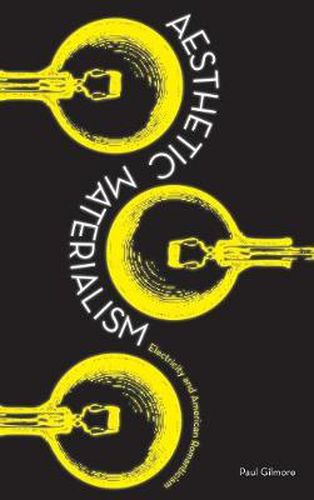Readings Newsletter
Become a Readings Member to make your shopping experience even easier.
Sign in or sign up for free!
You’re not far away from qualifying for FREE standard shipping within Australia
You’ve qualified for FREE standard shipping within Australia
The cart is loading…






Aesthetic Materialism: Electricity and American Romanticism focuses on American romantic writers’ attempts to theorize aesthetic experience through the language of electricity. In response to scientific and technological developments, most notably the telegraph, eighteenth- and nineteenth-century electrical imagery reflected the mysterious workings of the physical mind as well as the uncertain, sometimes shocking connections between individuals. Writers such as Whitman, Melville, and Douglass drew on images of electricity and telegraphy to describe literature both as the product of specific economic and social conditions and as a means of transcending the individual determined by such conditions. Aesthetic Materialism moves between historical and cultural analysis and close textual reading, challenging readers to see American literature as at once formal and historical and as a product of both aesthetic and material experience.
$9.00 standard shipping within Australia
FREE standard shipping within Australia for orders over $100.00
Express & International shipping calculated at checkout
Aesthetic Materialism: Electricity and American Romanticism focuses on American romantic writers’ attempts to theorize aesthetic experience through the language of electricity. In response to scientific and technological developments, most notably the telegraph, eighteenth- and nineteenth-century electrical imagery reflected the mysterious workings of the physical mind as well as the uncertain, sometimes shocking connections between individuals. Writers such as Whitman, Melville, and Douglass drew on images of electricity and telegraphy to describe literature both as the product of specific economic and social conditions and as a means of transcending the individual determined by such conditions. Aesthetic Materialism moves between historical and cultural analysis and close textual reading, challenging readers to see American literature as at once formal and historical and as a product of both aesthetic and material experience.